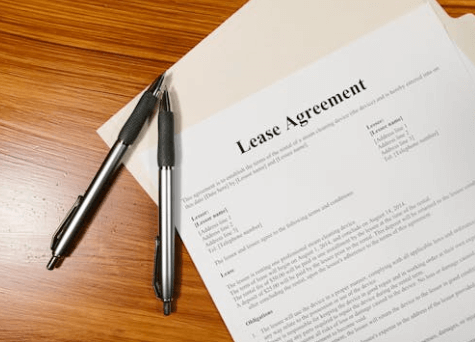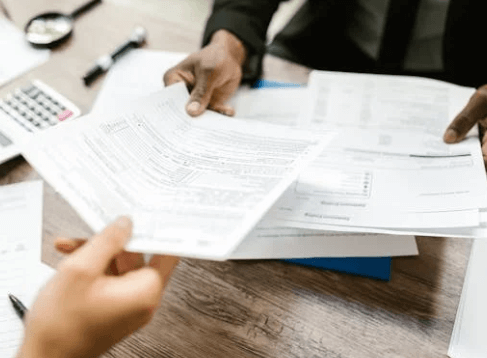Understanding the land lease meaning is essential for anyone exploring real estate options, whether for residential or commercial purposes. Did you know that land leases are becoming increasingly popular, with over 40% of mobile homes in the U.S. located on leased land? This arrangement allows individuals to lease land while owning the structure on it, offering flexibility and affordability. Steve Daria and Joleigh, acclaimed real estate investors and cash house buyers, stress the critical need to fully understand land leases before making any decisions. They’ve helped countless clients navigate the complexities of land leases, ensuring they make informed choices. Whether you’re considering leasing land for a home, business, or investment, understanding the land lease meaning can save you time and money. With the right guidance, a land lease can be a smart and cost-effective solution. Ready to learn more? Schedule a free consultation with Steve Daria and Joleigh today to receive personalized, expert advice tailored to your needs!
What does land lease mean in real estate?
A land lease in real estate is an agreement where you lease the land but don’t own it, while you may own the structure or property on it.
This type of arrangement is common for mobile homes, commercial properties, and even some residential developments.
The land lease meaning is simple: you pay rent to use the land for a specific period, which can range from a few years to several decades.

One of the main benefits is that it’s often more affordable than buying both the land and the property outright.
However, it’s essential to understand the terms of the lease, including rent increases, renewal options, and what happens when the lease expires, as a key part of understanding the land lease meaning.
Land leases can also come with restrictions on how you can use the property, so it’s crucial to review the agreement carefully.
This option is ideal for those who want flexibility or can’t afford to purchase land upfront.
Whether for personal or business use, a land lease can be a practical solution when approached with the right knowledge and understanding.
Get Started: Get Your Cash Offer Below…
We are direct land buyers. There are no commissions or fees and no obligation whatsoever. Start below by sharing where your property is and where we can send your offer…
What are the benefits of a land lease?
A land lease offers many benefits, making it a great option for both individuals and businesses.
One of the primary advantages is affordability, as you don’t have to purchase the land, which can significantly reduce upfront costs.
This proves to be especially beneficial for first-time buyers or businesses wanting to save money while still accessing valuable property.
The land lease meaning also includes flexibility, allowing you to use the land for a specific period without the long-term commitment of ownership.
This can be ideal for those who want to invest in a property but cannot afford to buy both the land and the building outright.
Additionally, land leases often result in lower property taxes since you’re not the landowner, which can save you money over time.
They also provide opportunities to access prime locations where purchasing land might be financially out of reach.
However, it’s crucial to carefully review the lease terms, including rent increases and renewal options, to ensure they align with your goals.
Overall, a land lease offers a flexible and cost-effective option, making it an attractive solution for both residential and commercial purposes.
What types of properties can be on leased land?
- Mobile Homes: They are one of the most common types of properties found on leased land. This arrangement is a key part of the land lease, meaning that homeowners can save money by leasing the land while owning the home itself.
- Commercial Buildings: Many businesses, such as restaurants, retail stores, and offices, operate on leased land. Leasing land gives businesses access to prime locations without the high upfront cost of purchasing the property.
- Agricultural Land: Farmers often lease land to grow crops or raise livestock. This is a cost-effective way to expand farming operations without the financial burden of buying large plots of land.
- Vacation Homes: Vacation homes, such as beach houses or cabins, are often built on leased land. This is especially common in resort areas where land ownership is limited or prohibitively expensive.
- Manufactured Housing Communities: Entire communities of manufactured homes are often located on leased land. Residents lease their lot while enjoying shared amenities such as parks, pools, or clubhouses.
What should I know before signing a land lease agreement?
Understanding the terms and conditions of a land lease agreement is essential before signing to avoid any unexpected issues down the line.
Start by reviewing the lease duration and what happens when it ends—will you have the option to renew, or will you need to leave the land?
Pay close attention to the rent amount and whether it will increase over time, as this can affect your long-term financial plans.
The land lease agreement also involves understanding your responsibilities, such as maintenance, property taxes, and insurance for the structure on the land.
Check for any restrictions on how you can use the land, such as building limitations or zoning regulations, which could impact your plans.
Additionally, confirm who is responsible for utilities and other services, as these costs can quickly add up.
Ensure the agreement clearly outlines the consequences of early termination by either party to avoid disputes.
Lastly, it’s a good idea to have a legal or real estate professional review the contract to make sure it fits your goals.
Taking these steps will help you make a confident and sound choice.
How do I calculate the costs of a land lease?
- Monthly Rent Payments: Start by reviewing the monthly rent amount stated in the lease agreement. This is the primary cost of the land lease meaning and will likely be your largest recurring expense.
- Annual Rent Increases: Check if the lease includes annual rent increases and how they are calculated, such as a fixed percentage or tied to inflation. Over time, these increases can add up significantly, making it crucial to account for them in your long-term budget planning.
- Property Taxes: Some land leases may require you to pay a portion of the property taxes, even if you don’t own the land. It’s crucial to clearly outline this responsibility in the lease agreement, as it can significantly influence the total cost of leasing.
- Maintenance and Utilities: Understand who is responsible for maintenance and utility costs, including water, electricity, and landscaping. These additional expenses are part of the overall land lease meaning and can vary depending on the lease terms.
- Insurance Costs: You may need to purchase insurance for the structure or property on the leased land. Be sure to include this in your total cost estimate to avoid unexpected financial surprises.

What documents do I need to sign a land lease?
When signing a land lease, there are several key documents you’ll need to prepare.
First, you’ll need a valid form of identification, such as a driver’s license or passport, to verify your identity.
The lease agreement itself is the most important document, as it outlines the terms, rent, and responsibilities for both you and the landowner.
Be sure to review it carefully to fully understand the land lease meaning and ensure you’re comfortable with the terms.
You may also need to provide proof of income or financial statements to demonstrate your ability to make the lease payments.
For business leases, additional documentation, such as licenses or permits, may be necessary.
Some agreements may also require insurance documents to confirm coverage for the property or structure located on the leased land.
Additionally, be ready to pay a security deposit or upfront payment as outlined in the lease terms.
For a smooth process, it’s a good idea to have a legal or real estate professional carefully review the agreement before you sign.
Taking these steps will help you feel confident and prepared throughout the process!
Takeaway
- Definition of Land Lease: The land lease meaning refers to an agreement where you lease land instead of purchasing it outright. This allows you to use the land for a specific period while paying rent to the landowner.
- Lower Upfront Costs: A land lease can help you save money by reducing upfront costs since you’re not buying the land. This makes it an affordable option for individuals, families, and businesses seeking to manage their budgets effectively.
- Flexibility in Use: The land lease meaning includes flexibility, as it allows you to use the land for various purposes, such as building a home, running a business, or farming. However, it’s essential to review the lease terms for any restrictions that may limit your plans.
- Responsibilities of the Lessee: In most cases, the lessee is responsible for maintenance, property taxes, and insurance for any structures on the leased land. To prevent any misunderstandings, these responsibilities should be explicitly detailed in the lease agreement.
- Renewal and Termination Terms: Land leases usually have a fixed duration, with options to renew or terminate at the end of the term. Understanding these terms is essential to planning for the future and avoiding unexpected issues.
**NOTICE: Please note that the content presented in this post is intended solely for informational and educational purposes. It should not be construed as legal or financial advice or relied upon as a replacement for consultation with a qualified attorney or CPA. For specific guidance on legal or financial matters, readers are encouraged to seek professional assistance from an attorney, CPA, or other appropriate professional regarding the subject matter.
